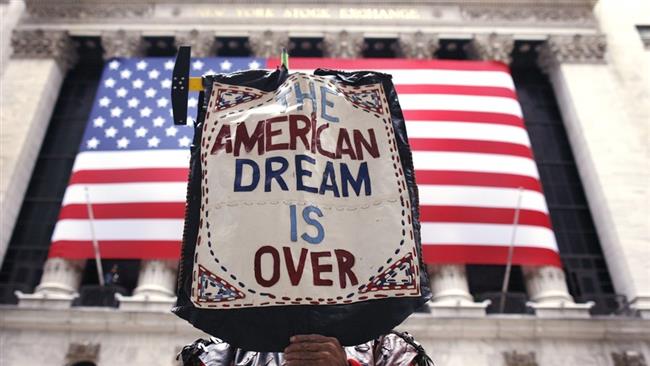
RNA - The Associated Press survey released on Sunday showed that 71 percent of Americans,regardless of political party, believe the country has "lost its identity," and only 28 percent thought the nation's "identity was secure."
The poll found that Republicans are far more likely than members of other parties to cite a culture based on Christian beliefs and the traditions of early white European immigrants as essential to US identity.
A fair judicial system and rule of law, the freedoms enshrined in the Constitution, and the ability to get good jobs and achieve the so-called American dream are some points where most Democrats, Republicans and independents agree about what makes up the country’s identity.
The opinion divided dramatically when it came to the issue of immigration, with 47 percent saying that illegal immigrants threatened the American way of life, while 15 percent said even legal immigration bears the same risk.
Nearly 57 percent of Americans thought that migrants should adopt the American culture, while 42 percent said the country needs to change its culture when new people arrive.
The anti-immigration sentiments were stronger among Republicans, as only 55 percent of them were in favor of accepting people who fled “violence and persecution.” The number jumped to 74 among Democrats.
About 65 percent of Democrats said a mix of global cultures was extremely or very important to American identity, compared with 35 percent of Republicans. About 57 percent of Republicans saw Christianity as that important, compared with 35 percent of Democrats.
Republicans were in favor of an “essential American culture.” Democrats, however, mostly supported a mixed culture.
Asked about their top concerns, Republicans pointed to illegal immigration while Democrats listed a fear of the country's political leaders, political polarization and economic inequality.
Interestingly, fear of interference by foreign powers was a common source of concern for both groups, with nearly 40 percent of Democratic and Republican participants deeming it as “extremely or very threatening.”
The findings painted a grim picture of the American society less than two months into Donald Trump’s presidency.
The former real-estate developer defeated his Democratic rival, former Secretary of State Hillary Clinton, on November 8, after leading one of the most divisive presidential campaigns in American history.
The new president has come under fire for his crackdown on immigration. His cabinet members’ ties with Russian officials have fueled speculations that he is under Moscow’ influence.
847/940